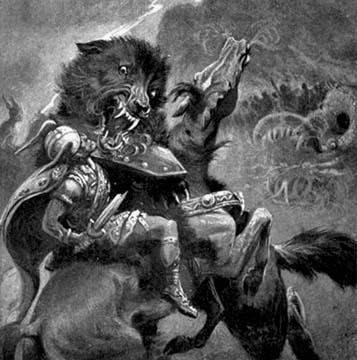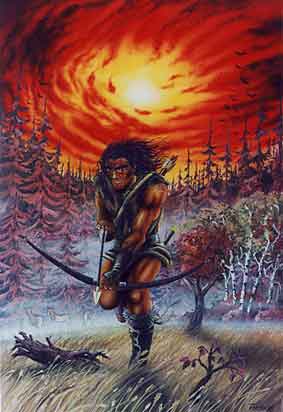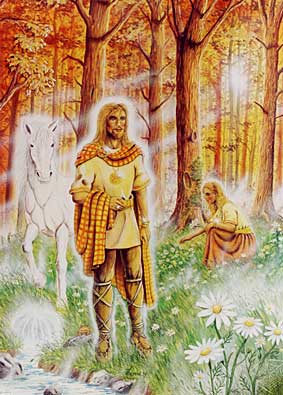In Norse
mythology, Víđarr (often Anglicized Vidar or Widar) is a god associated with
vengeance and is the son of Odin and the giantess Gríd. His major deed in the
mythology is to avenge his father’s death at Ragnarök and is one of the few
gods destined to survive that final conflict.
Vidar
is called the silent god who wears a thick shoe, is almost equal in strength to
Thor, and can always be counted on to help the Aesir in their struggles. During
Ragnarök, when the wolf Fenrir devours Odin, Vidar will avenge him by stepping
down with one foot on the lower jaw of the monster, grabbing his upper jaw in
one hand and tearing his mouth apart, killing him. Vidar’s “thick shoe”
consists of all the leather waste pieces that people have cut from their own
shoes at the toe and heel, collected by the god throughout all time. Therefore,
anyone who is concerned enough to give assistance to the gods must throw these
pieces away. Following Ragnarök and the rebirth of the world, Vidar along with
his brother Váli will have survived both the deluge of the sea and the fiery
conflagration unleashed by Surtr, completely unharmed, and shall thereafter
dwell on the field of Idavoll, “where the city of Asgard had previously
been”.

Víđarr fighting the wolf Fenrir

